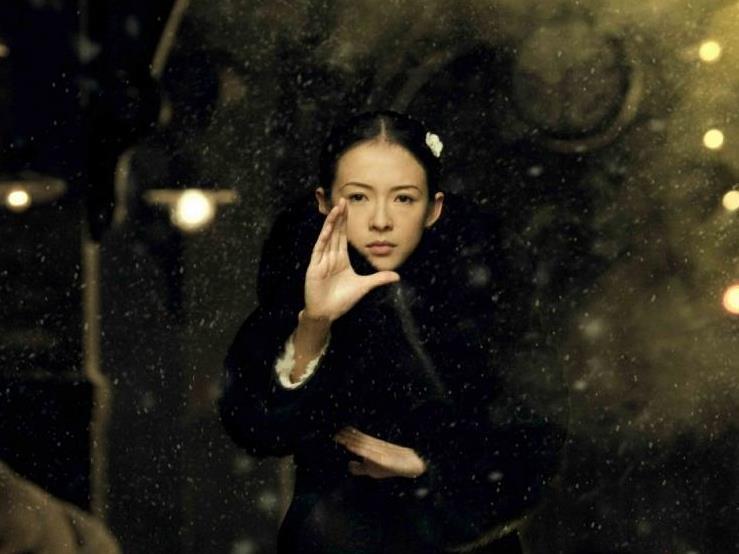That Wong Kar-wai’s latest feature again dwells upon the fleeting is certain to elicit a wry smile in the watching audience; the journey to the screen of the Hong Kong filmmaker’s first film since 2007 English-language outing My Blueberry Nights, an effort no less than six years in the making, has proven anything but. Its content and construction, too, further the contradiction.
“Nothing lasts forever, and that’s fine,” the sorrowful Gong Er (Zhang Ziyi, Dangerous Liaisons) tells Ip Man (Tony Leung, The Silent War) as their paths intertwine once more, the two sharing a past coloured with conflict, combat, competition and catastrophe. On the eve of his retirement in 1936, Gong Er’s grandmaster father Gong Yutian (Wang Qingxiang, Chinese Zodiac) journeyed from his northern home to a southern village, with local Ip Man his ceremonial challenger. Once proven as a finessed fighter, Ip Man was set against the dutiful and dexterous daughter, their first fray sparking years of silent yearning.
The war-torn post-dynasty climate punctuates their meetings, the Japanese occupation tearing China to pieces. As devastation rages around them, the one-time duelling duo each has their own cross to bear, be it providing for a loving family, or honouring their paternal influence. Of course, all things must come to pass as the pair loiters within each other’s orbits, including their unrequited romance. In the fictionalised version of the real-life figure’s tale – made common movie fodder due to his later-life role as teacher to a young Bruce Lee – emotion resonates from the scantest of story arcs, in the epitome of the intersection of the echoing and the ephemeral.
In the leisurely, non-linear yet unavoidably episodic structure that sometimes struggles for focus, the bulk of The Grandmaster is furnished by Ip Man and Gong Er’s time apart: the many battles and brave faces that pave their respective paths. It is the first that is swift and the second that is slow, a flurry of flying fists pitched against long looks, but – in fitting with the filmmaker’s noted calm and calculation – the contrast is far from contrived or clumsy. Recalling his previous wuxia effort, Ashes of Time, the writer/director allows his fight scenes to explode with energy; reminiscent of the tender, thoughtful In the Mood for Love and 2046, elegance oozes from Leung and Ziyi’s pained expressions. One replaces the other, as time and events fly by, nothing remaining but everything enduring.
Sumptuously, the usual aesthetic sheen accompanies Kar-wai’s attentive imagery; however the expected nature of the poise and polish doesn’t make it any less impressive. Along with subtlety, style is what the auteur does best – and the operatic The Grandmaster is gifted with an abundance of each. With a nuanced black and white colour palette worked into the overall look, as best demonstrated in rain-soaked night-time bouts and snow-set, tear-soaked treks, beauty always emanates. Indeed, the visuals match the themes, both a spectacle to behold and a sensation to experience, even if only briefly.
The sweeping and searing extends to Leung and Ziyi, their characters’ physical and emotional aches and arcs ever-present in their performances. Why Kar-wai continues to cast the devastating Leung is plainly apparent; why he also returned to the delicate but disarming Ziyi is never in question. In watching their grace and melancholy, as realised with the helmer’s instinctive cinematic poetry, it is easy to forget that the version of The Grandmaster seen in Western countries is not the first nor even the second preferred edit. Given the finished product’s potency, perhaps the perfect incarnation of the movie itself is also only a momentary occasion. With ample mood and an innate ability to mesmerise, The Grandmaster never fails to immerse for that fleeting instant.
Rating: 4 out of 5
The Grandmaster (Yi dai zong shi)
Director: Wong Kar-wai
Hong Kong / China, 2013, 109 mins
Brisbane International Film Festival
November 13 – 24





